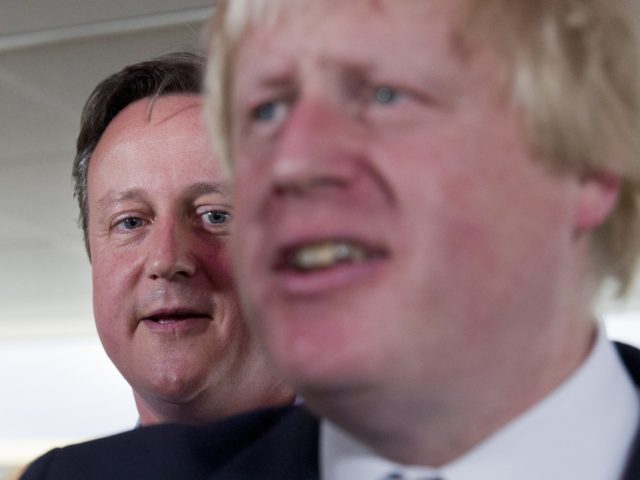A David Cameron-era law that left Britain’s government paralysed and Brexit at the mercy of what transpired to be an unrepresentative Parliament is being repealed, returning a small part of the UK constitution to the long-term historical norm.
The Fixed-Term Parliaments Act is set to be repealed by Boris Johnson’s Conservative government just nine years after it was voted into power by another Conservative Prime Minister, David Cameron. The law, which changed the way general elections were called from being events that could either be voluntary by the government or forced on them by events, to being fixed on a permanent five-year cycle, was passed during the 2010 coalition government to appease the junior governing partner, Nick Clegg’s Liberal Democrats.
While the concept of fixed-term parliaments was part of a raft of major changes to Britain’s unwritten, and generally quite longstanding and time-tested, constitution wanted by the Liberal Democrats — including a total change to the nation’s election system to benefit smaller challenger parties like themselves — the introduction of the law had very specific consequences in the life of the last parliament, as members weaponised the job security it gave them to delay and sabotage the Brexit process for six painful months.
British broadsheet The Times reports the remarks of a Tory insider who said of the decision to push ahead with scrapping the act: “The Fixed-term Parliaments Act caused constitutional chaos last year which, when combined with gridlock in parliament, meant the previous government couldn’t deliver what it was asked to do. Ultimately, at critical moments, we trust the public to decide. So we are going back to the system that lets elections happen when they are needed.”
Would Turkeys Vote For Christmas? Why MPs Will Resist Boris Johnson’s Snap Election https://t.co/yaWidxRhwh
— Breitbart London (@BreitbartLondon) September 4, 2019
Through the leadership of Theresa May and Boris Johnson, the government was repeatedly defeated on Brexit votes, events under the old system that would have seen the government collapse and a new general election called. But because the law prevented that from happening, anti-Brexit rebels on both sides of the house were able to constantly throw roadblocks in the way of the Brexit process but not face the judgement of the voters.
In an effort to block the deadlock, Boris Johnson attempted to call a general election three times, but was prevented by doing so by rebel MPs invoking the act on every occasion. Even though it was becoming increasingly clear the country supported Brexit being done, a legacy parliament that did not represent that attitude clung on to power beyond its natural life through the act.
Eventually, the government was able to pass a simple law overriding the act to sign into existence a one-off election, which the Conservatives — campaigning heavily on a platform of making Brexit happen — won in a major landslide, even taking northern left-wing seats that hadn’t voted Conservative in generations. The haughty attitude of Labour’s London-based ‘metropolitan elite’ leaders towards Brexit was widely blamed for this defeat.
Another promise made by the Conservatives in that election was to repeal the Fixed-Term Parliaments Act, to prevent a so-called ‘zombie parliament’ holding the country to ransom again, both by preventing the government from governing while at the same time preventing a new government from being elected. As Breitbart London reported in December when the government started to move forwards with abolishing the act, Vernon Bogdanor, Professor of Government at King’s College London outlined some of the issued with the act that would be dismissed with its repeal.
Professor Bogdanor said the 2011 law was “full of holes” and, perhaps being charitable, remarked that when it was written the authors may have not foreseen the situation which came to pass where “the government had lost control of the Commons, Her Majesty’s Opposition would, for tactical reasons, refuse an election”.
The ability of the government to collapse is, the professor said, in fact a “vital safeguard against inter-party manoeuvrings and shenanigans”.

COMMENTS
Please let us know if you're having issues with commenting.